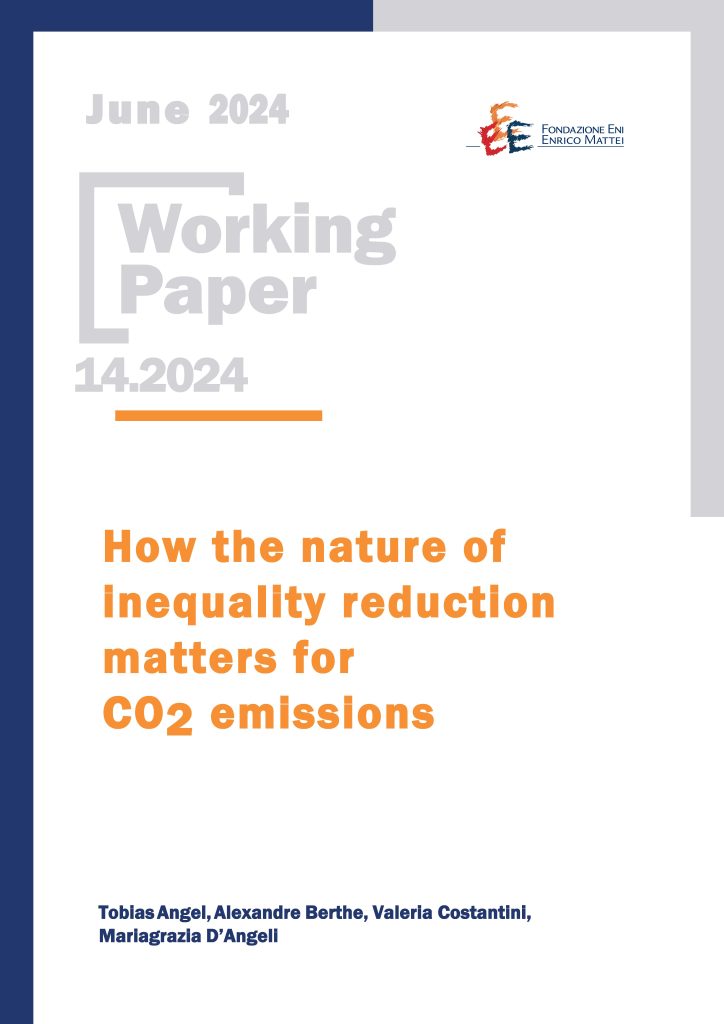How the nature of inequality reduction matters for CO2 emissions

24.06.2024
Tobias Angel (Università degli Studi Roma Tre and Université Paris Cité), Alexandre Berthe (Université Rennes 2 and LiRIS), Valeria Costantini (Università degli Studi Roma Tre and SEEDS), Mariagrazia D’Angeli (Università degli Studi Roma Tre and SEEDS)
C33, D63, H23, Q54
Inequality, Redistribution, Emissions, Climate Change, Social Protection
This study investigates the relationship between distinct types of inequality and CO2 emissions using panel data on 156 countries from 1995 to 2020. Using fixed effects panel and quantile regression techniques, we report estimates that indicate that pre-distribution (inequality reduction by structural changes and social protection) is better aligned with the goal of carbon emission reduction than redistribution (inequality reduction by transfers).
However, those countries who contribute the least to global warming face the highest environmental degrading effect of pre-distribution. In contrast, pre-distribution decreases or does not affect the carbon emissions of the biggest global polluters. Redistribution, on the other hand, exhibits the reverse pattern. Moreover, we differentiate in this analysis between production-based and consumption-based emissions, finding on average higher challenges regarding joint inequality and emission reduction in countries that produce carbon intensive commodities. These findings call for international cooperation, structural changes and social protection policies to achieve the Sustainable Development Goals of joint inequality and carbon emission reduction.
***
Suggested Citation: T. Angel, A. Berthe, V. Costantini, M. D’Angeli, ‘How the nature of inequality reduction matters for CO2 emissions’, Nota di Lavoro 14.2024, Milano, Italia: Fondazione Eni Enrico Mattei.
